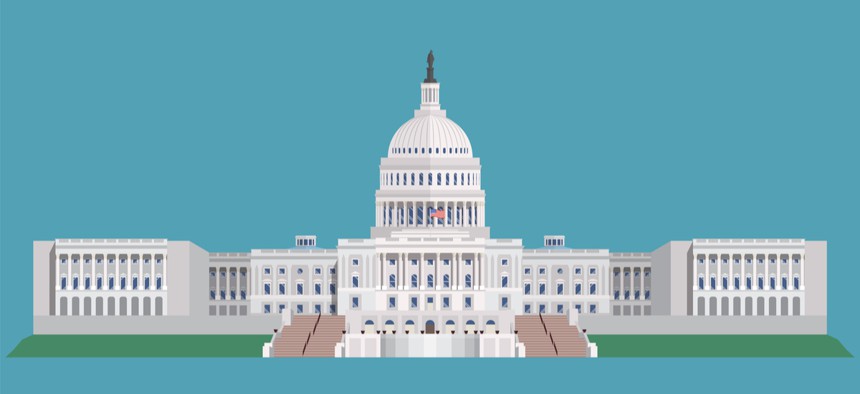Lawmakers Intro Bill to Enhance Not-Yet-Revived Office of Technical Assessment

Sira Anamwong/Shutterstock.com
A group of House and Senate lawmakers want the office to be more responsive and transparent, assuming funding to reinstate it gets through the appropriations process.
As Congress tries to write legislation governing groundbreaking technological advancements from drones to social media to government IT, a group of lawmakers is admitting they and their colleagues need help.
In the past, the Congressional Office of Technology Assessment acted as a nonpartisan resource for lawmakers, but the office was dismantled in 1995. Thursday, a bipartisan group from the House and Senate introduced a bill to reestablish the OTA with an upgrade.
“The foundation for good policy is accurate and objective analysis, and for more than two decades the OTA set that foundation by providing relevant, unbiased technical and scientific assessments for members of Congress and staff. Defunding the OTA significantly eroded the technological capacity of this institution, especially as the use of technology became more prominent in our society,” Rep. Mark Takano, D-Calif., said in a statement Thursday.
Takano introduced the Office of Technology Assessment Improvement and Enhancement Act along with House cosponsor Bill Foster, D-Ill., and partners in the Senate, Mazie Hirono, D-Hawaii, and Thom Tillis, R-N.C. The bill would upgrade legislation that established the office in 1972, so long as funding proposed in the House appropriations bill for 2020 passes unchanged.
Just bringing the office back won’t be enough, according to Hirono, as modern technology advances well beyond any layperson’s understanding.
“As Congress is faced with issues that are more and more technically complex—from cybersecurity to artificial intelligence to quantum computing—it is vital that OTA not only be reconstituted, but that it be reformed to meet the demands of the modern Senate,” she said. “The bill would make the new Congressional Office of Technology [Assessment] more accessible and accountable to members of Congress than its predecessor; require that advice be provided in a timely manner; and ensure that the office remain staffed with experts with current experience in relevant fields. These are the types of commonsense reforms that all members can—and should—get behind.”
The bill also requires OTA staff to function more like the Congressional Research Service, including “providing briefings, informal conversations and technical assistance to members … without the need for [Technology Assessment Board] review.” The legislation also requires OTA to provide preliminary analysis on important topics while more comprehensive reviews are in progress.
“The bill is a good approach to address some of the modernization issues for OTA—although I’d like to see a new round of hearings to work through more of the details,” Zach Graves, head of policy for the Lincoln Network, told Nextgov. “While OTA functioned pretty well in its era, Congress is very different now versus 1972 or 1995. Having the conversation around updating the office to meet current needs is the right approach.”
This isn’t the first time lawmakers have tried to revive the office. Last year, a group of House members—including Takano—introduced an amendment to the legislative branch’s funding bill that would have reinstated the office with one-tenth of the budget it had when it was shuttered.
If the current proposal fails as well, lawmakers will not be without resources. The Government Accountability Office—which works for and is funded by the legislative branch—stood up its own Science and Technology Assessment and Analytics group in February with $15 million and has almost 70 staffers as of September.
The legislation introduced Thursday acknowledges this effort, as well as the role of the Congressional Research Service, and instructs all three groups to work together to avoid overlap.
Editor's note: This article was updated to correct when the STAA launched.
NEXT STORY: House passes stopgap funding bill






